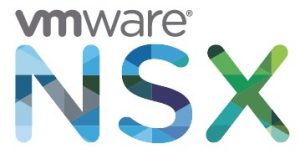Software Defined Networking and Infrastructure
Software-Defined Networking (SDN) is an approach to networking that uses software-based controllers or application programming interfaces (APIs) to communicate with underlying hardware infrastructure and direct traffic on a network. This model differs from that of traditional networks, which use dedicated hardware devices (i.e., routers and switches) to control network traffic. SDN can create and control a virtual network – or control a traditional hardware – via software. While network virtualization allows organizations to segment different virtual networks within a single physical network, or to connect devices on different physical networks to create a single virtual network, software-defined networking enables a new way of controlling the routing of data packets through a centralized server.
Why Software-Defined Networking is important?
SDN represents a substantial step forward from traditional networking, in that it enables the following: Increased control with greater speed and flexibility: Instead of manually programming multiple vendor-specific hardware devices, developers can control the flow of traffic over a network simply by programming an open standard software-based controller. Networking administrators also have more flexibility in choosing networking equipment, since they can choose a single protocol to communicate with any number of hardware devices through a central controller. Customizable network infrastructure: With a software-defined network, administrators can configure network services and allocate virtual resources to change the network infrastructure in real time through one centralized location. This allows network administrators to optimize the flow of data through the network and prioritize applications that require more availability. Robust security: A software-defined network delivers visibility into the entire network, providing a more holistic view of security threats. With the proliferation of smart devices that connect to the internet, SDN offers clear advantages over traditional networking. Operators can create separate zones for devices that require different levels of security, or immediately quarantine compromised devices so that they cannot infect the rest of the network.

Mbulase and VMware
Mbulase is VMware Principal partner with a Master Services Competency (MSC) in NSX. Mbulase has invested significantly in the skills, competencies, and knowledge required to attain our VMware Master Services Competency. By achieving the competency, Mbulase is now one of an elite group of partners in South Africa who carry the badge of honour, specifically in Network Virtualization.
Mbulase and SUSE
Mbulase is a SUSE Principal partner. Mbulase, in partnership with SUSE, provides industry-leading Enterprise Container Management platforms such as SUSE Rancher. Starting your journey with Linux containers! SUSE is the best development and deployment framework that provides application portability, agility, and scalability. Installing Docker was the start of your container journey. Now, you’re ready to deploy your container-based application at scale with Kubernetes.
